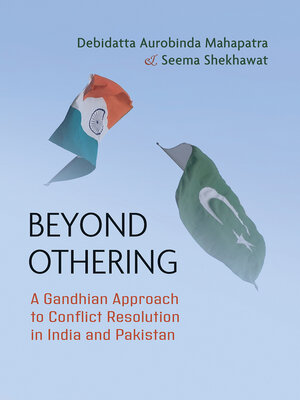Beyond Othering
ebook ∣ A Gandhian Approach to Conflict Resolution in India and Pakistan · Syracuse Studies on Peace and Conflict Resolution
By Debidatta Aurobinda Mahapatra

Sign up to save your library
With an OverDrive account, you can save your favorite libraries for at-a-glance information about availability. Find out more about OverDrive accounts.
Find this title in Libby, the library reading app by OverDrive.



Search for a digital library with this title
Title found at these libraries:
| Loading... |
Mohandas K. Gandhi opposed the 1947 partition of British India that created two independent states of India and Pakistan, as he believed that partition politics, rooted in the psychology of othering, would turn South Asia into a near permanent conflict zone. His apprehension was not without basis. The psychology of othering that engendered partition continues to manifest itself in multiple ways, including, but not limited to, interstate wars and communal violence. It permeates not only politics at a higher level but also everyday life. In exploring partition and post-partition developments in South Asia in this interdisciplinary work, Mahapatra and Shekhawat argue for a Gandhian approach to transform the conflict landscape in South Asia.
The authors illustrate how Gandhian principles of multicultural belonging and pluralism are key to resolving conflicts not just in South Asia but across the world. Beyond Othering is a timely and relevant contribution to the discourse on conflict resolution, making it essential reading for scholars, policymakers, and practitioners interested in peacebuilding in the region and beyond






